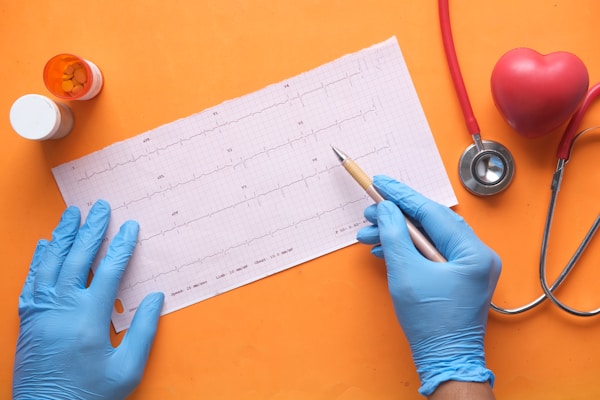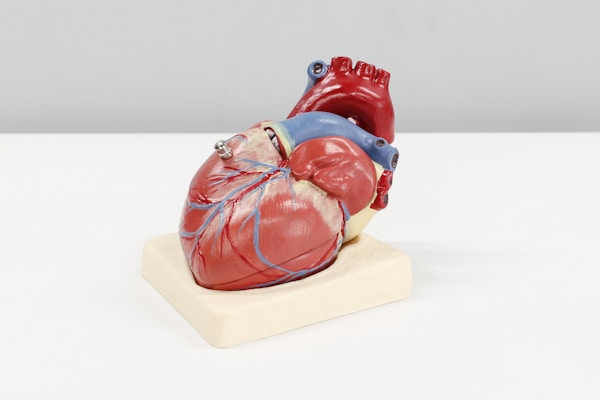Cardiologists are specialized physicians who diagnose and treat various heart-related conditions and disorders. As heart disease is the leading cause of death worldwide, taking proper care of your heart health is paramount. It may feel overwhelming to schedule your first appointment with a cardiologist, but worry not! We are here to provide insight into what you can expect during your visit. In this article, we will guide you through the different stages of the consultation process to help dispel any concerns you may have.
Preparing for Your Cardiology Appointment

Before visiting a cardiologist, it is essential to gather all required documentation and medical records, including previous test results, medical history, family history of heart disease, and any medications you are currently taking. Having all the relevant information will allow your cardiologist to make an accurate assessment of your heart health. It is also useful to jot down any specific symptoms, concerns, or questions you have to ensure you cover everything during your appointment.
Choosing the right cardiologist for your needs is key, as finding a doctor you trust and feel comfortable with will make the entire process much smoother. Research different cardiologists in your area and consider recommendations from friends, family, or primary care doctors. The best cardiologists in Los Angeles, for example, have outstanding reputations and years of experience, so checking reviews and patient testimonials can also be beneficial.
Be aware that most cardiologist appointments may involve various diagnostic tests, particularly if it is your first visit. Wear comfortable clothes that make it easy to expose your chest for an EKG if needed. Avoid caffeine and nicotine before your appointment, as these can affect heart rate and blood pressure readings.
Initial Consultation and Physical Examination

Upon arrival, you will first meet with your cardiologist to discuss your medical history, any symptoms or concerns you may have, and your overall lifestyle. This conversation allows your doctor to identify potential risk factors for heart disease and to better understand your health needs. Be open and honest with your cardiologist, as the more information they have, the more accurate their assessment and treatment plan will be.
After discussing your medical history and concerns, the cardiologist will carry out a physical examination. The doctor may also check for swelling in your legs or feet, which can be an indication of poor blood circulation. If your cardiologist feels they are needed, they may order diagnostic tests, such as an EKG, echocardiogram, or stress test, to assess your heart’s function in more detail. These tests identify any abnormalities, damage, or potential risk factors for heart complications.
Diagnostic Testing and Evaluation
Depending on your symptoms and risk factors, your cardiologist may order one or more diagnostic tests. The most common is the electrocardiogram (EKG or ECG), which measures the electrical activity of your heart to detect arrhythmias, heart attacks, or other issues. Other tests may include blood tests to check for cholesterol levels, an echocardiogram (ultrasound imaging) to assess the structure and function of your heart, or a stress test, which measures your heart’s response to physical activity. Each test provides valuable information to help your cardiologist accurately diagnose any issues and create a tailored treatment plan.
Establishing a Treatment Plan and Follow-Up Care

Once your cardiologist has assessed your heart health, symptoms, and test results, they will design a personalized treatment plan to manage and improve your condition. This plan may include a combination of medications, lifestyle changes, and additional tests or procedures. You may also need to change your diet. Ensure you understand why each intervention is crucial to your success and clarify any doubts or concerns you may have.
Follow-up appointments play a vital role in maintaining your heart health so your cardiologist can track your progress, make adjustments to your treatment plan, and provide ongoing support. Attend all follow-up appointments as scheduled and report any new symptoms or concerns that arise. By taking an active role in your health, following your treatment plan, and maintaining regular communication with your cardiologist, you can significantly reduce the risk of heart complications and lead a healthier, happier life.
As you can see, visiting a cardiologist for the first time can be a bit daunting; however, by being adequately prepared and having a good understanding of what to expect, you can take control of your heart health and embark on a path of improved well-being. Remember, open communication and a strong partnership with your cardiologist are necessary for managing your heart health effectively. Follow the tips in this article and you can trust that you’re taking the best possible care of your heart.


